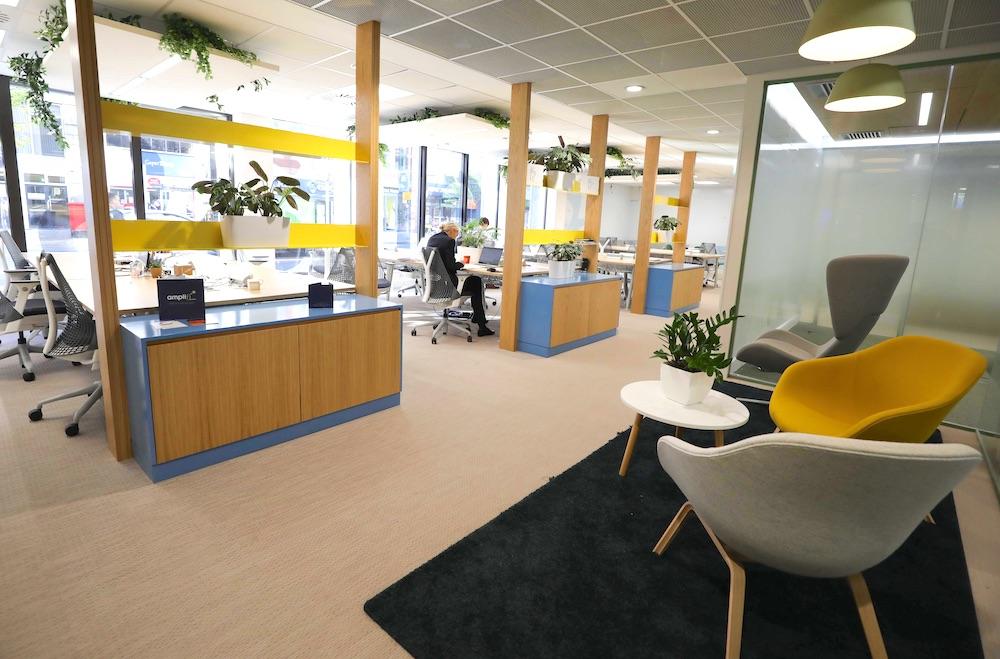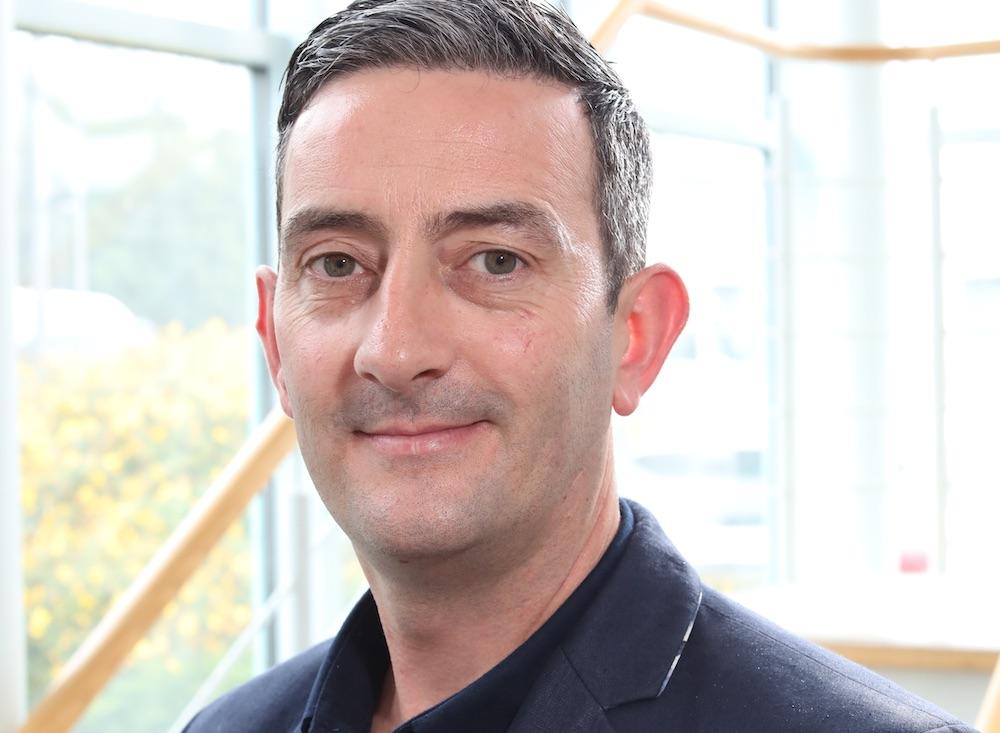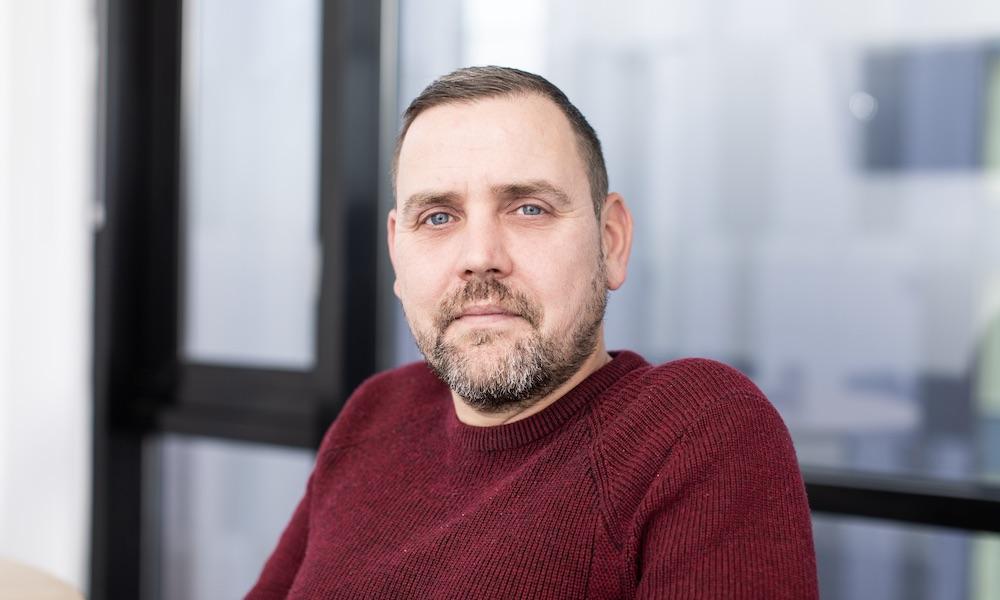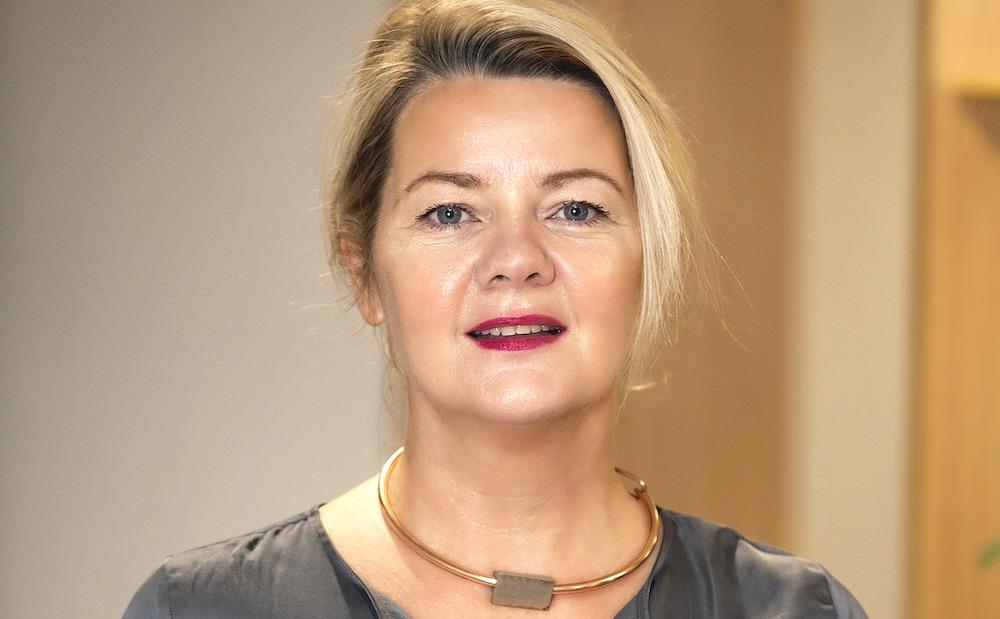
A year on from its official launch, the Catalyst Belfast Fintech Hub can reflect on a number of successful contributions to Northern Ireland’s start-up scene.
It is now a year since Danske Bank took the bold move of opening a co-working hub for early stage tech companies in the same space as its flagship branch at Donegall Square West in the centre of Belfast.
Partnering with Northern Ireland’s start-up and knowledge economy experts Catalyst, the bank wanted to create a space where it could support the growing number of local entrepreneurs seeking to create disruptive tech products and solutions and connect them to valuable expertise within the bank.
The Hub has been embraced by the start-up community in Belfast and beyond, and Aisling Press, Head of Branch Banking at Danske Bank, who oversees the Hub, says both organisations are pleased with the first year.
“We feel we have achieved what we set out to do in our first year. It’s a thriving co-working space and several of our member companies have gone live with their products. Other companies have expanded their teams and a number have raised significant investment. That’s hugely encouraging,” she says.
“The Hub is in a prime location and has been fitted out to a high spec, which, combined with the access the partners provide to mentors and advice – and in some cases to our customers – has helped create a community the like of which doesn’t really exist elsewhere in the city. We’ve created something unique. Collaboration and community really are at the heart of what we are doing.”
Elaine Smyth, Director of Innovation Community at Catalyst, notes that neither organisation had undertaken a partnership on this scale before.
“We have worked with early stage entrepreneurs over many years and built a community of innovators,” she says.
“What Danske were planning resonated with us and it felt like a good fit for us to bring the community, the vibe and the energy to the project.”
Elaine adds: “The Hub brings something quite unique to the market. Catalyst is providing access to its programmes, connections and support. Danske is connecting people and providing insights for those in the financial space. We are already seeing this partnership approach add real value.”
Aisling admits it has been a learning experience for Danske Bank. But she says the experience of acting as the launch pad for companies that are creating innovative products and services has been very rewarding.

In recent months they have seen loyalBe launch its customer rewards platform; worked with TakeTen’s Fintan Connolly to pilot his stress management app among Danske employees; and seen BlueSona secure a six-figure investment from Co-Fund NI. They are delighted that start-ups like collaboration software provider Oroson has been so successful that it has outgrown the hub.
“Those companies are an inspiration for new members, they show what’s possible. We want them to stay involved and to share their experience with the entrepreneurs currently based here,” says Aisling.
Elaine adds: “This first year has been a year of trying and testing things. In the next 12-18 months we intend to build on that further, strengthening the proposition for existing and new members but also the wider community,” she says.
“We’ve been taking on board all their feedback, insights and recommendations and will be building that into the experience. I think in year two we will be more focused, more intentional about who we are, about the benefits we bring and about who we want to be part of it.”
Aisling agrees that any co-working space is only as good as its members and the community they create.
“We want to evolve based on the experience we’ve gained and drive the community element in the next phase. For Danske Bank this has always been about giving back to the community and helping promote innovation. We’re excited about what the year ahead might bring.”
Meet the start-ups at the Catalyst Belfast Fintech Hub

Bluesona’s CEO Mel Morrison has been involved in the fintech hub since it opened. The Downpatrick-based software company has developed technology designed to reduce mobile phone usage while driving.
The app – called Loop – was developed by Mel when his daughter was learning to drive and provides real time data to insurance companies and warns users when they try to use their phone.
Bluesona recently secured significant investment and are in the final stages of completing commercial deals with a number of big insurers and brokers in the UK, Ireland and Europe.
“We have offices in Downpatrick and our development centre in Letterkenny but having space at the Hub in a central location has been fantastic for us when these companies fly in to meet us,” says Mel.
“I’d describe the hub as a mature start-up company ecosystem. You are there to work and have proper discussions, and the networking is great, but it’s not a youth club. We are building our team, but even as we grow I think we will always keep people on in the hub. They have really embraced what we’re doing.”

Like many exciting start-ups Johnny Matthews’ company SeeMeHired is trying to disrupt a traditional business model. The company offers a digital end-to-end recruitment solution that changes how employers attract and hire talent and helps jobseekers find and communicate with organisations relevant to them.
SeeMe uses a matching algorithm that places relevant roles in front of potential employees, generating a ‘talent match’ percentage for the employer – encouraging them to hire based on merit and culture fit. Optional features also ensure no elements of unconscious bias enter into the selection process. The business has taken on external investment and will soon release its new app.
“We want to upset the traditional recruitment model, where candidates are not aware about all the other jobs they could be eligible for and don’t get any feedback or communication. We’re also changing how employers present themselves to candidates,” says Johnny.
SeeMeHired has just moved to its own offices in Causeway Tower and is about to hire six new team members, but Johnny intends to keep using the hub every week too.
“It is a great place to network, to feed off each other, to help one another get around problems. We’ve also found other start-ups who provide services to us, including marketing and design,” he says. “Danske Bank is now one of our customers and it has been great to have exposure to the HR team and to some of the bank’s customers too.”

Christine Boyle has used her almost 20 years’ of experience in the commercial roofing industry to create Senergy, which has designed and developed the world’s first nanocomposite solar thermal panels. These SMART polymer-based solar panels help deliver affordable solar heating by replacing old glass, copper and aluminium panels which are expensive and much maligned aesthetically.
Working with Innovate UK’s government-backed High Value Manufacturing Catapult, Christine has employed both Queen’s University and Ulster University to design and test her panels. The first products will be demoed next year on buildings in Belfast, Dublin, Edinburgh, London, Exeter and Boston. The lower cost of the panel means an earlier return on investment for customers.
Senergy is now targeting Northern European countries who are ahead of the UK and Northern Ireland in renewable energy and Christine has been using Danske Bank’s network to help access these markets.
“The combination of Danske and Catalyst has been useful for us. We like the city centre location and the contact with other companies. I’ve been on all of Catalyst’s programmes and attended many of their well thought out series of seminars looking at IP, legislation, investment, scaling, building a team, etc. That was all valuable when we went to Innovate UK for funding after being in R&D for several years. It allowed us to push ourselves forward.”